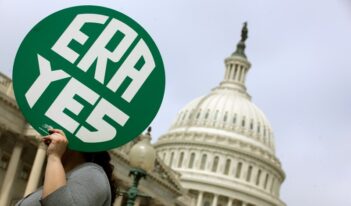
The Court has set two different standards for when employees can waive their workplace rights.
Justice Neil Gorsuch began his opinion in Epic Systems Corp. v. Lewis with a rhetorical question: “Should employees and employers be allowed to agree that any disputes between them will be resolved through one-on-one arbitration?” The U.S. Supreme Court—divided along a familiar 5-4 line—answered affirmatively. It held that protection for employees’ concerted activity under the National Labor Relations Act does not prohibit employers from inserting mandatory arbitration clauses in their employment contracts.
Justice Gorsuch’s opening question reveals a blindness to workplace power dynamics. For employees who, like the respondent Jacob Lewis himself, are faced with a choice between accepting individual arbitration or losing their jobs, a more apt question would be whether employers can order employees to accept an individual arbitration clause.
But Justice Gorsuch, unsurprisingly, is indifferent to even the most severe constraints on employee choice. As a judge for the U.S. Court of Appeals for the Tenth Circuit, Justice Gorsuch famously dissented in the “frozen trucker” case, writing that a driver whose torso and feet had become numb with cold, whose speech had become slurred and confused, and who was having trouble breathing after his trailer broke down had an “unpleasant option”: His company told him he could either continue to wait for rescue or “drag the trailer” himself. But the driver “chose” to detach the truck from the trailer and drive himself to safety, which “he thought wise but his employer did not.”
We should not be surprised that someone who would characterize as a choice the decision not to sit in an unheated truck in freezing temperatures would say the same about acceptance of individual arbitration on pain of firing.
Individual arbitration clauses will render many employees unable to enforce their workplace rights as a practical matter. Workers need to be able to aggregate their low-dollar-value claims, such as many wage and hour claims, into class action suits to make litigating their cases cost-effective and to obtain counsel. Thus, a further refinement of Justice Gorsuch’s question in Epic Systems might yield the question, “Should employers be allowed to order employees to waive the practical ability to enforce many of their workplace rights?” Apparently, the answer is “yes.”
On the other hand, the Court’s conservative majority does support one set of employees. In Janus v. AFSCME, the same five justices in the Epic Systems majority held that union-represented public employees have a right not to pay for their share of the representation their elected unions must provide. Janus overturned a case decided 41 years prior, Abood v. Detroit Board of Education, which held that public employees could be required to pay their share of a union’s representation costs, but not its other expenses, including the union’s participation in politics. Two parts of the Janus Court’s reasoning stand out in light of Epic Systems.
First, part of the Janus majority’s reasoning rested on the perceived difficulty of enforcing the line between “chargeable” and “nonchargeable” expenses under Abood. Represented workers who objected to the amount they were charged could police that line through a combination of arbitration and litigation. To facilitate that enforcement, objectors were entitled to procedural protections known as Hudson procedures, including “an adequate explanation of the basis for the fee, a reasonably prompt opportunity to challenge the amount of the fee before an impartial decisionmaker, and an escrow for the amounts reasonably in dispute while such challenges are pending.” The Janus majority, however, concluded that enforcement was still too difficult due to potentially “substantial” attorney’s fees.
Second, the Janus majority held that the First Amendment requires an opt-in framework for union-represented nonmembers: “By agreeing to pay, nonmembers are waiving their First Amendment rights, and such a waiver cannot be presumed.” The majority’s discussion of this principle was remarkably thin, resting on just two cases: Johnson v. Zerbst, which concerned waiver of the Sixth Amendment right to counsel, and Knox v. SEIU, Local 1000, a union fees case in which the majority first found a constitutional right to an opt-in default. Then the Janus Court added another requirement—an agreement to pay union fees must be shown by “clear and compelling” evidence.
The majority ignored other contexts in which, for example, the Court has approved government schemes aimed at actively dissuading people from exercising constitutional rights. Likewise, the Court has enforced waivers of other rights without requiring that the person requesting the waiver provide notice or process protections similar to Hudson procedures, much less an “opt in” default and a “clear and convincing” standard of proof. Individual arbitration clauses—which can waive the right to a civil jury trial—are one example, as seen in Epic Systems. Similarly, the Court has upheld waivers of First Amendment rights arising outside the union context and has rejected the argument that any special evidentiary standard should apply to waivers. In fact, courts require that rights holders be given notice of their rights or procedural assistance in exercising them in only rare circumstances.
A different Court might have constructed a unified understanding of the circumstances under which employees can waive their rights—an understanding that might be generally pro- or anti-waiver. But this Court has done neither. Instead, after the decisions in Epic Systems and Janus v. AFSCME, the Court has demonstrated that it favors some rights and some rights holders, but disfavors others.
This essay is part of a series, entitled The Supreme Court’s 2017–2018 Regulatory Term.




